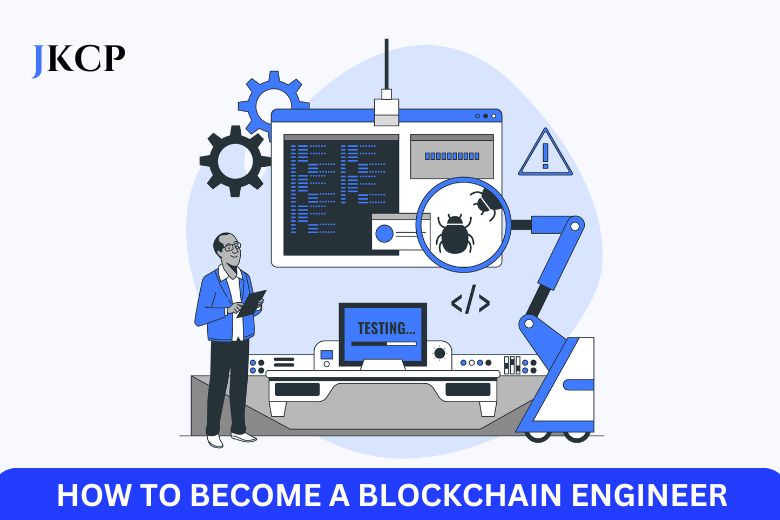How to Become a Certified IoT Professional
So, you’ve probably heard about smart devices like thermostats that adjust automatically or lights that turn on with a voice command, right? Well, that’s just a tiny peek into the Internet of Things (IoT) world. IoT is all about connecting devices, networks, and systems to gather and exchange data – making everyday life smarter and more efficient. From healthcare to agriculture, IoT is transforming industries on a massive scale.
With 32 billion connected devices expected by 2030, companies are scrambling to find experts who truly understand the complexity of IoT. The catch? There’s a huge skills gap in the market. This is where you can step in as a certified IoT professional. Certifications help you stand out to employers and prove you’ve got the know-how to navigate this fast-evolving space.
Ready to dive into the world of IoT and take your skills to the next level? Let’s unpack how to become a certified IoT pro and set yourself up for success in one of the hottest tech fields.
What Is IoT and Why Should You Care?
You’ve possibly heard the term “IoT” thrown around, but what does it really mean? Briefly, IoT stands for the Internet of Things, a network of physical devices connected to the Internet – smartphones, smartwatches, sensors, and even household appliances. These devices collect and exchange data, making your daily life easier and businesses more efficient.
For example, imagine a smart fridge that tracks when you’re running low on groceries and automatically orders more. Or think about smart cities where traffic lights adjust based on real-time data to reduce traffic jams. Cool, right? IoT is everywhere, from healthcare (monitoring vital signs) to agriculture (automating irrigation).
Why should you care?
Well, with Statista projecting 32 billion IoT devices by 2030, companies need specialists who understand how to work with these systems. That’s where IoT certifications come in. Not only will getting certified help you break into this growing field, but it’ll also prove to employers that you know your stuff. Let’s face it: the IoT world is booming, and certified professionals are in high demand.
Why Getting Certified Makes a Difference
So, why should you bother with a certification? Can’t you just learn IoT through online tutorials or jump straight into a job? Well, certifications do more than just look good on your resume. They give you the skills and credibility needed to stand out in a competitive market. Plus, they provide a structured way to gain expertise in everything from IoT security to networking.
An IDC survey predicts a major IT skills gap by 2026, so the demand for certified IoT professionals is skyrocketing. Employers are searching for people who can confidently handle the challenges of IoT development, including managing networks, ensuring device security, and understanding IoT architecture.
But here’s the real kicker – certified IoT professionals can earn up to 20% more than their non-certified peers. In other words, investing in an IoT certification is like getting a VIP pass to better job opportunities, a higher salary, and more exciting projects.
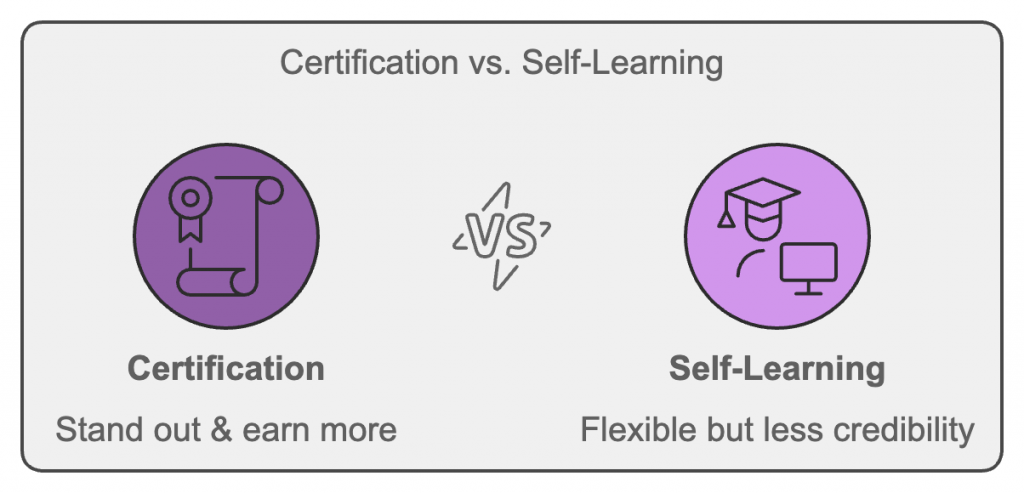
Choosing the Right IoT Certification for You
Alright, now that you’re hyped about the pluses of becoming IoT certified, let’s discuss the real question: Which certification should you pick? With so many options, it can feel like selecting a needle out of a haystack. But don’t worry – we’ve got you covered.
Here’s a comparison table of the top-rated IoT certifications to help you decide which one fits your goals.
| Certification | Focus Area | Cost | Duration |
| CCC IoT Foundation | Vendor-neutral IoT basics | $349 | Self-paced |
| CertNexus CIoTP | IoT device deployment & management | $599+ | Varies |
| Cisco Introduction to IoT | Networks, devices, and digital transformation | Free | 6 modules |
| Stanford Graduate Certificate in IoT | Advanced IoT technology & sensors | $Varies | Up to 3 years |
| Iot-Inc Certified IoT Professional | Advanced IoT tech & strategy | $1,199 | Self-paced |
If you’re a newcomer, you might want to start with the Cisco Introduction to IoT, a free course that walks you through everything from IoT networks to programming languages like Python. CCC IoT Foundation is a brilliant choice for those starting out and covers basic concepts, IoT architecture, and enabling technologies. If you’re looking for a deeper dive, CertNexus CIoTP certification focuses on planning and managing IoT devices in real-world scenarios.
The Stanford Graduate Certificate in IoT will be a godsend for those who aim for something more advanced. This program explores IoT sensors, embedded systems, and networking. Finally, Iot-Inc Certified IoT Professional covers IoT technologies in great detail and is ideal to level up your IoT game.
Ready, Set, Certify
The certification process might seem intimidating, but breaking it down into clear steps will make it easier. Here’s how you can get certified in IoT, step by step:
- Pick a certification. Review the list of certifications and decide the one that matches your career goals – security, development, or architecture.
- Study the materials. Most certification providers offer study guides, labs, and other resources to prepare you. You can also check out online platforms like Coursera or Udemy for extra courses.
- Practice, practice, practice. Practicing exams and working on IoT projects will help you get comfortable with the material. Plus, hands-on experience is the backbone of understanding how IoT works in the real world.
- Ace the exam. Once you’re feeling confident, take the exam. Most certifications will have a multiple-choice format or hands-on labs to test your knowledge. Crush it, and boom – you’re certified!
Pro Tip. Don’t just memorize facts – focus on understanding the concepts. IoT is a skyrocketing field, so being adaptable and having a solid foundation will help you in the long run.
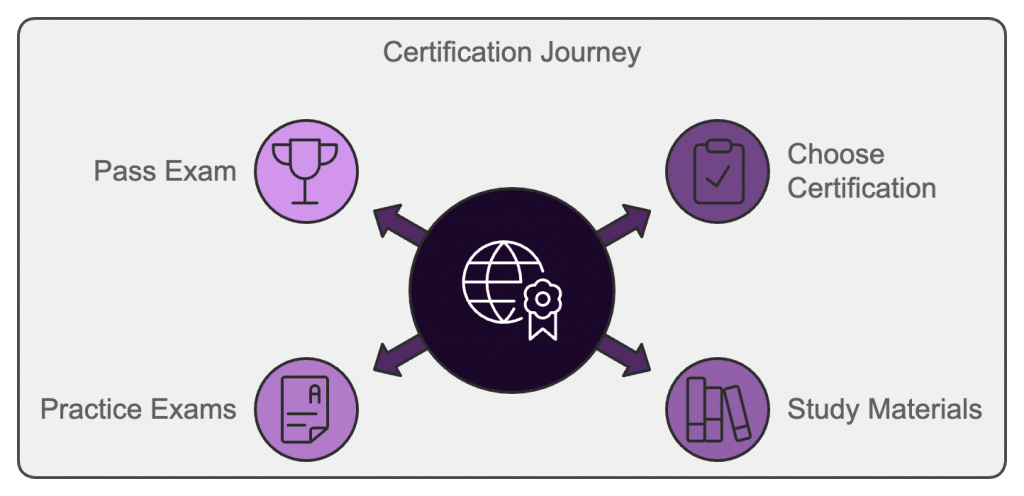
Study Resources That Actually Work
Now that you know the steps, let’s discuss the tools to help you succeed. You don’t have to go it alone, since plenty of resources are out there to help you ace your IoT certification. Here’s a list of tried-and-true options:
Do not overlook a chance to use these resources to get the best shot at mastering the material and passing your certification exam. Bonus: Plenty of these platforms offer self-paced learning, so you can fit study sessions around your busy schedule!
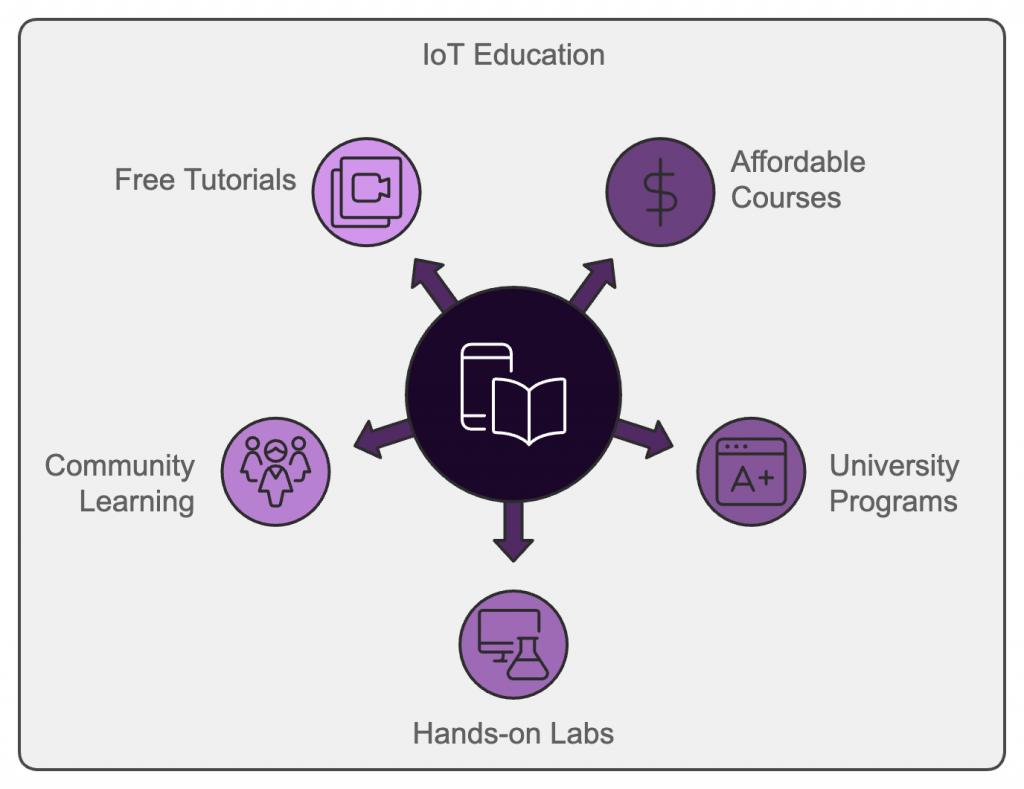
Real Projects You Can Try Right Now
What’s the point of learning about IoT if you don’t get to play with cool tech, right? One of the best ways to truly understand IoT is by getting hands-on and building your projects. Here are a couple of simple yet impressive, projects that can help you gain practical experience:
- Smart Home System Using Arduino. Ever wanted to remotely control the lights, fans, or even the thermostat in your home? With an Arduino board and some basic coding, you can build a smart home system to control these devices from your smartphone. Plus, it’s a great way to dive into IoT networking.
- Temperature Monitoring with Raspberry Pi. This project uses Raspberry Pi to build a temperature monitoring system that can send real-time data to your phone or computer. It’s a brilliant choice for getting familiar with IoT sensors and data collection.
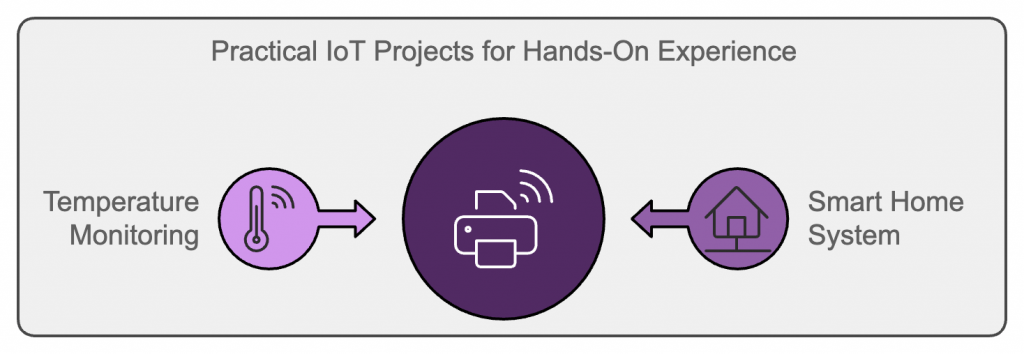
Don’t worry if you’re just starting. These projects are newcomer-friendly, and you can find plenty of guides online to help you through each step. The best part? You get to see your work come to life!
The Exam
Alright, you’ve done the studying, practiced on real-world projects, and you’re feeling ready. But before you can call yourself a certified IoT professional, there’s one last step: the exam.
Here’s what you can expect from most IoT certification exams:
Pro Tip. Schedule your exam when you’re well-prepared and have had enough time to review all key areas. Don’t rush it—mastery takes time!
Advanced IoT Certifications for Pros
If you’re already working in the tech field and want to take your IoT skills to the next level, advanced certifications are designed specifically for experienced professionals. These certifications dive deep into technical details, giving you a competitive edge in the job market. Here are some top options:
Stanford Graduate Certificate in IoT. This prestigious program is for those looking to expand their IoT knowledge at an advanced level. It covers everything from IoT sensors to embedded systems and networking. The program is excellent if you’re working in an IoT-focused company and need to develop further expertise.
Iot-Inc Certified IoT Professional (ICIP). Aimed at those with hands-on IoT experience, this course covers 45 modules and over 160 lessons, focusing on in-depth IoT technology and strategies. If you’re serious about becoming an IoT expert, this self-paced course is one of the most comprehensive options.
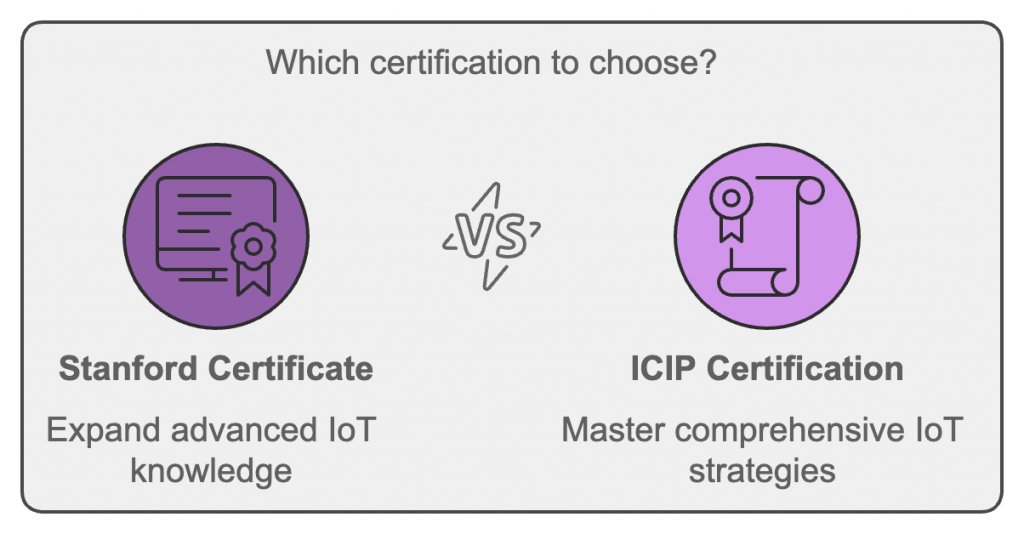
These certifications are well-suited for professionals who want to specialize in IoT, work on more complex projects, or even lead IoT initiatives within their companies. Keep in mind that these programs often require a solid understanding of IoT fundamentals, so make sure you’re ready for the challenge!
What Happens After Certification?
After earning your certification, various exciting career paths open up. Here’s a career roadmap to help you visualize where your IoT certification can take you:
| Career Stage | Role | Description |
| Certified IoT Professional | Starting Point | You’ve got the basics down – now you can begin applying your skills in real-world IoT environments. |
| IoT Engineer | Designer & Developer | Design, develop, and implement IoT systems. You’ll be working hands-on with IoT devices and networks. |
| IoT Architect | System Architect | Lead the design of entire IoT ecosystems, overseeing how devices, networks, and software interact. |
| IoT Consultant | Strategic Advisor | Help companies implement IoT solutions and develop strategies to maximize IoT technologies. |
Whether you want to stay on the technical side as an IoT Engineer or move into a leadership role like an IoT Architect, your certification gives you the foundation to pursue a bunch of careers in this exciting field.
Take the Next Step!
Becoming a certified IoT professional is more than just earning a badge – it’s your ticket to working in one of the most exciting and burgeoning fields in tech. Whether you’re just getting started or looking to level up your career, the journey through IoT certification will equip you with the skills and knowledge to stand out in a competitive job market. And who knows, you might become the architect behind the next smart city or groundbreaking IoT solution. The prestigious IoT world is waiting – you only need to take your next step!


